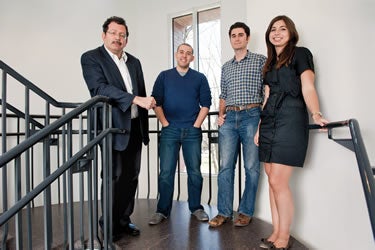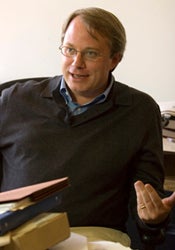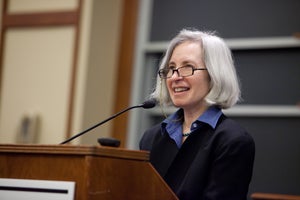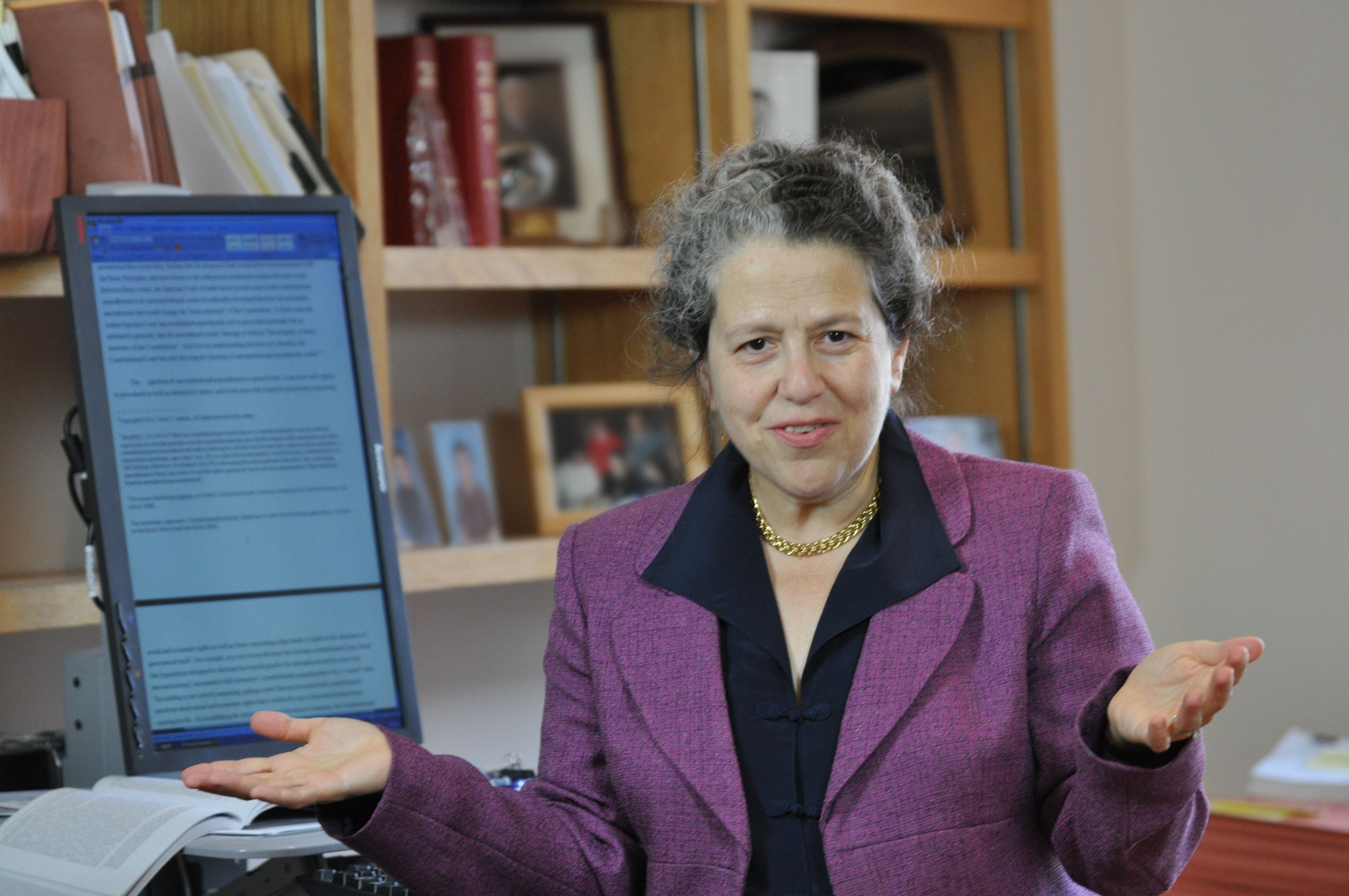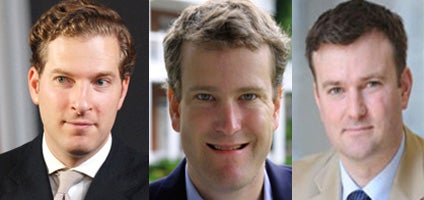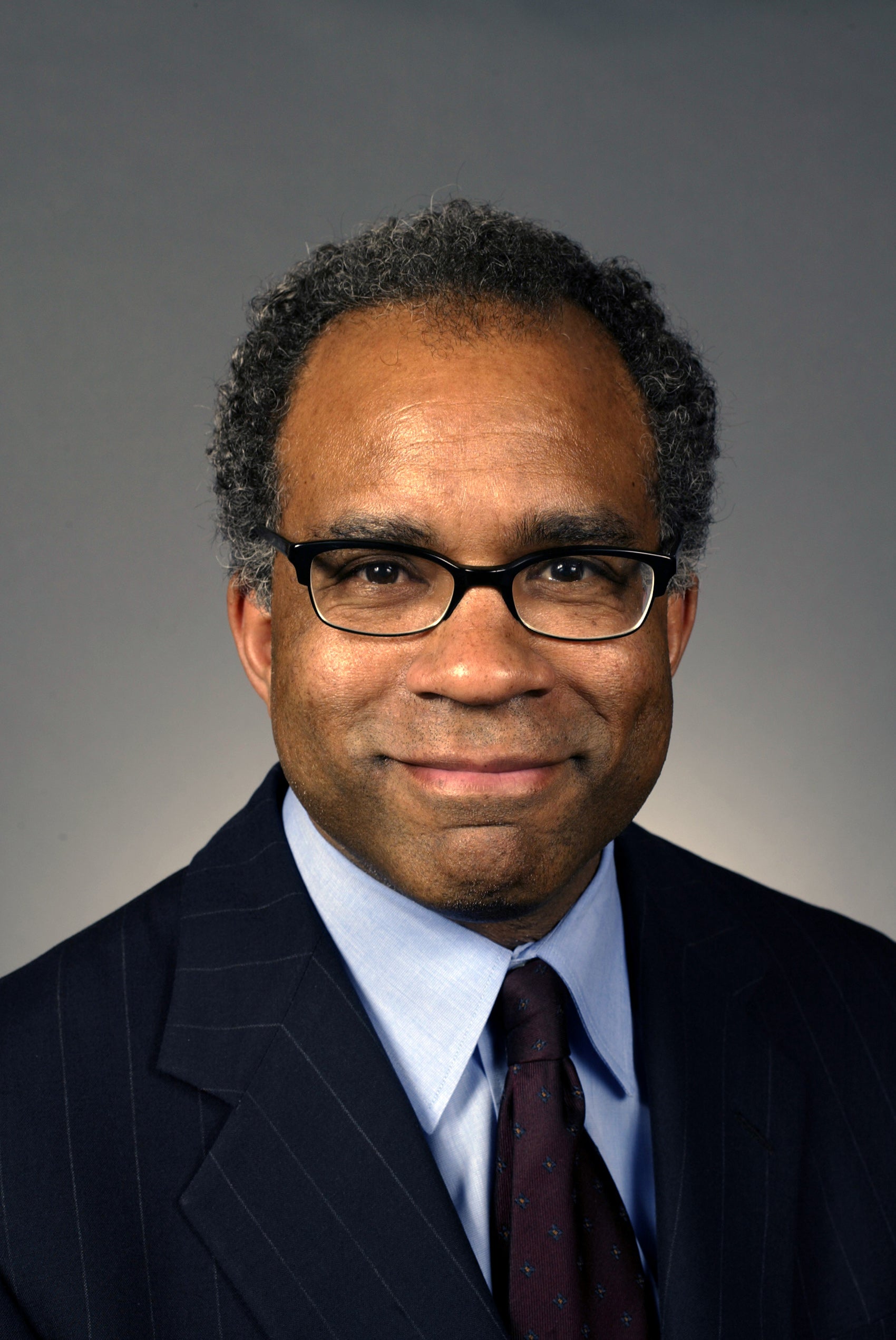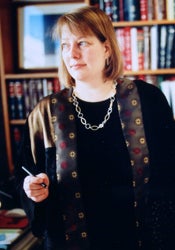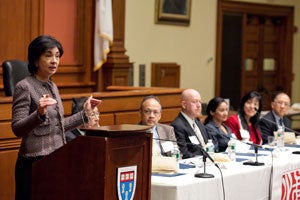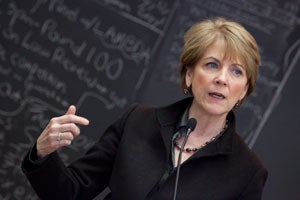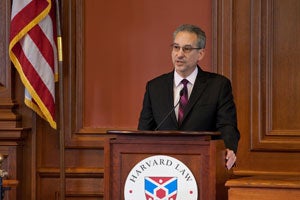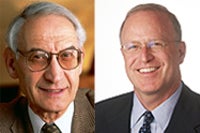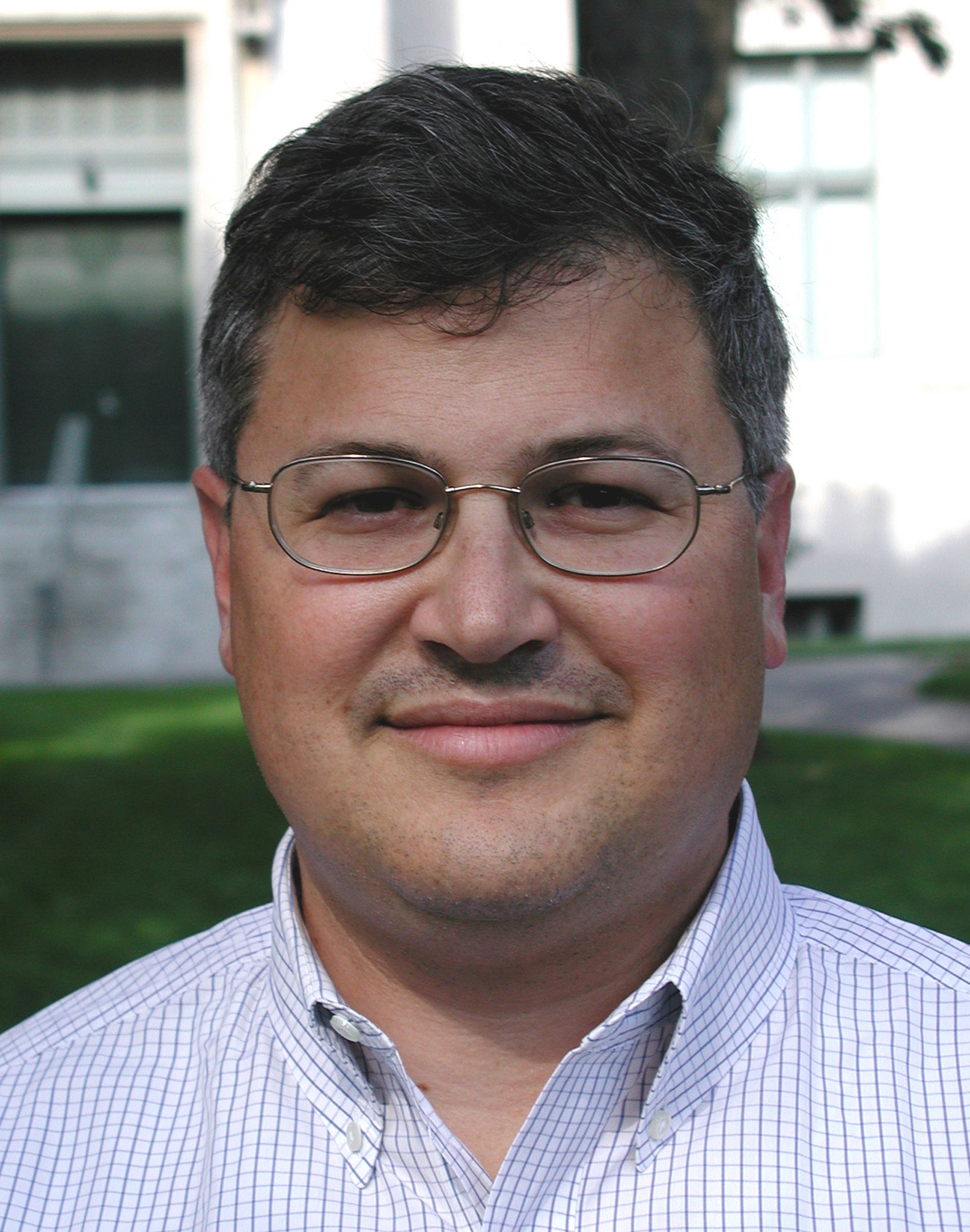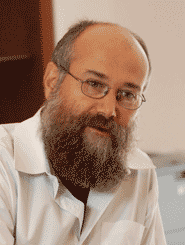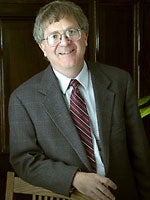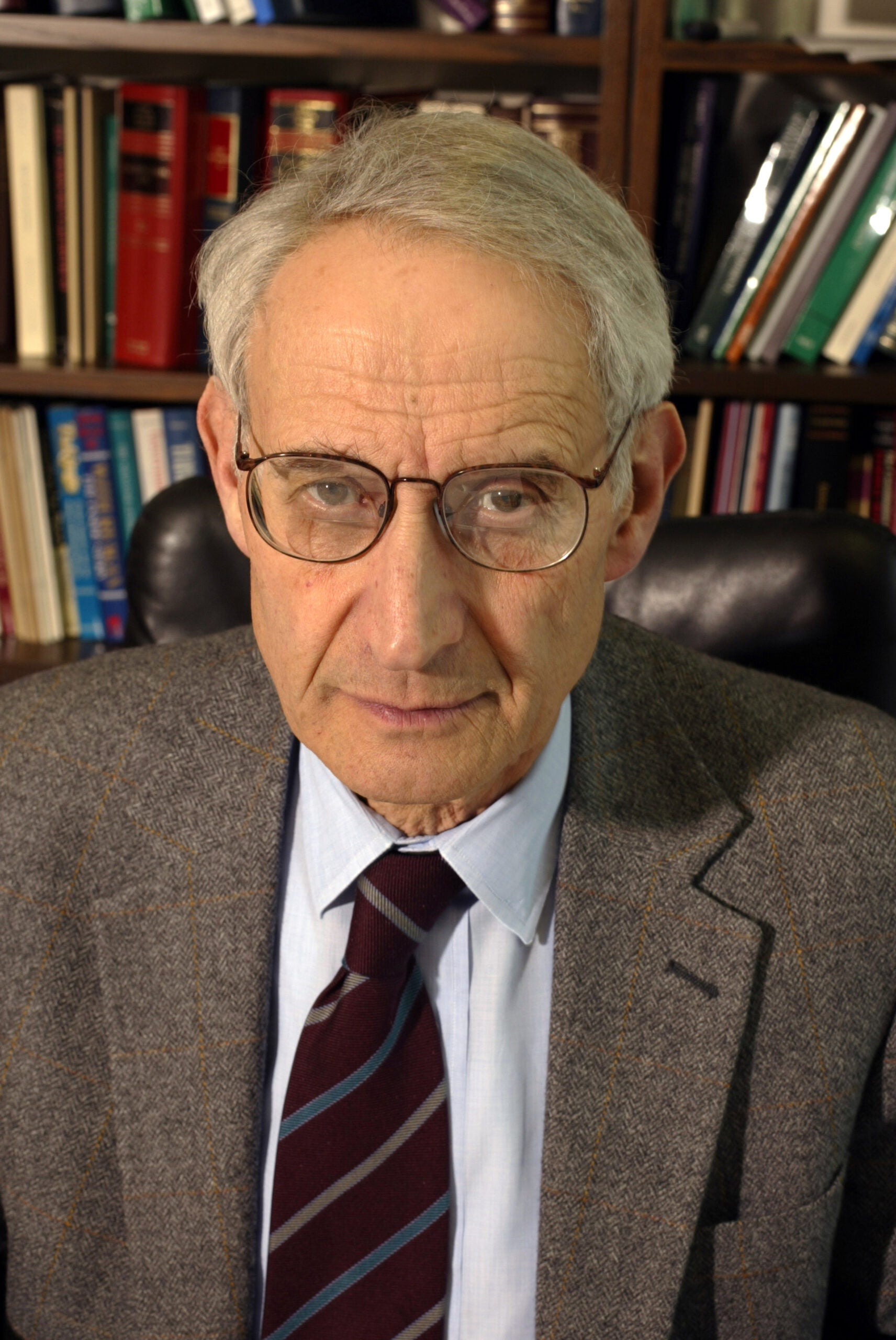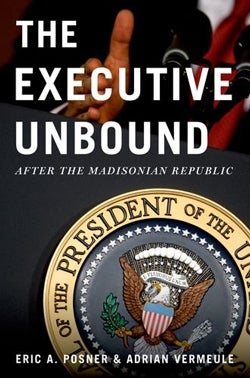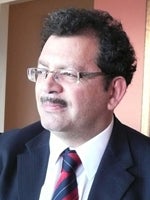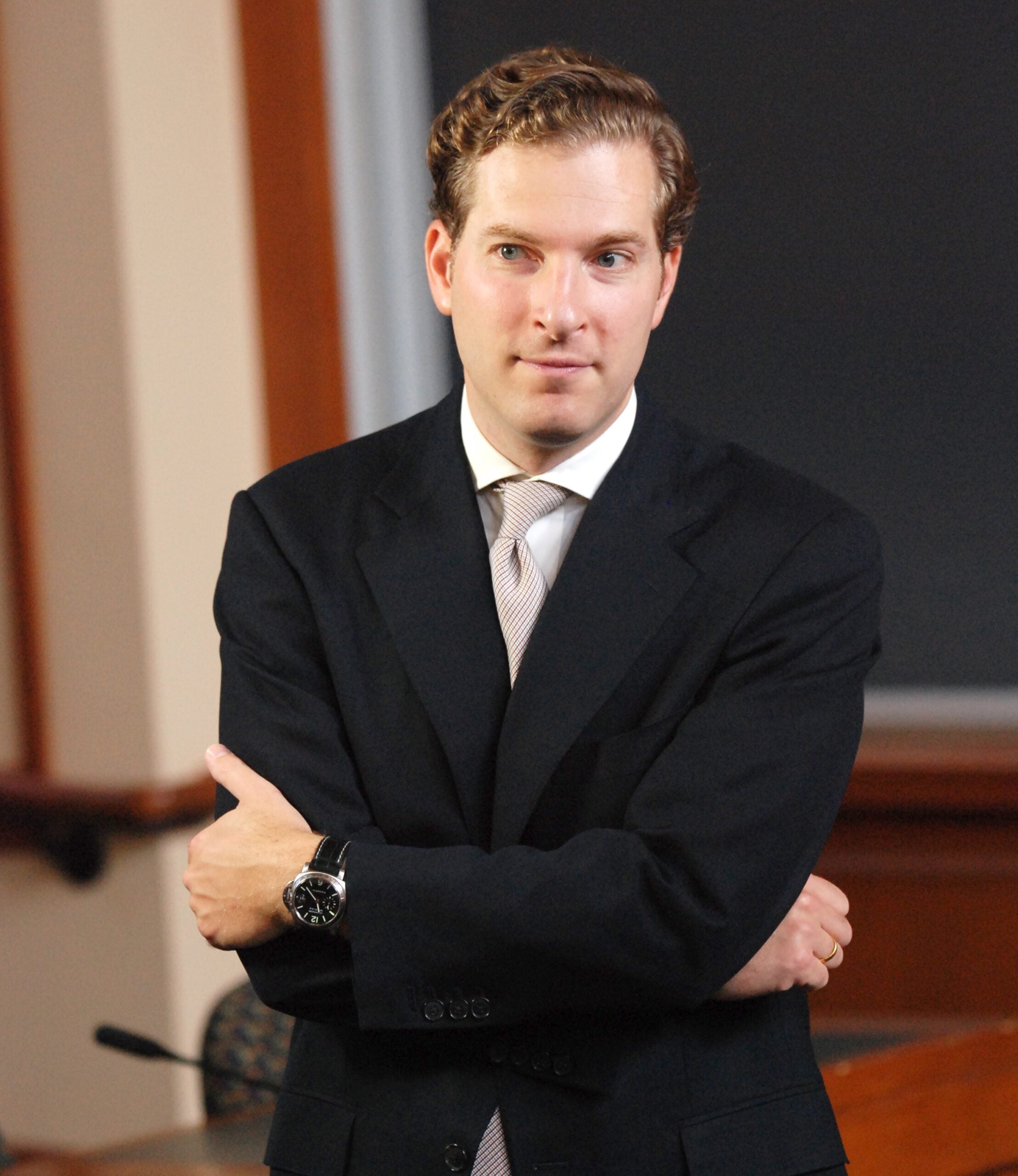Topics
Constitutional
-
Taking an Idea and Running with It
July 1, 2011
This winter, as protests erupted throughout the Middle East, Jason Gelbort ’12 was one of the many obsessively watching the news, wondering if there was anything he could do to help. Then, on March 2, he went to a talk by Chibli Mallat, the Custodian of the Two Holy Mosques Visiting Professor of Islamic Legal Studies at HLS.
-
Vermeule on Slate.com: Libyan Legal Limbo
June 28, 2011
“Libyan Legal Limbo,” an op-ed by Harvard Law Professor Adrian Vermeule ’93 and University of Chicago Law Professor Eric Posner ’91, appeared June 27 on Slate.com.
-
Six Harvard Law School professors and six ideas worth spreading, in 60 minutes (video)
June 17, 2011
This year’s “HLS Thinks Big” event, inspired by the global TED (Technology Entertainment and Design) talks and modeled after the College’s “Harvard Thinks Big” event first held last year, took place on May 23, featuring topics ranging from legal assistance for undocumented students to risk analysis in constitutional design.
-
Vicki C. Jackson appointed Professor of Law at Harvard
June 13, 2011
Harvard Law School Professor Vicki Jackson marked her appointment to the Thurgood Marshall Professorship of Constitutional Law with an Oct. 3 lecture titled "Proportionality and Judging in American Constitutionalism."
-
Vermeule on ‘Constitutional Redemption’ in TNR
June 13, 2011
In a Jun. 8 review in The New Republic, Harvard Law School Professor Adrian Vermeule ’93 discusses a new book by Jack M. Balkin, titled “Constitutional Redemption: Political Faith in an Unjust World” (Harvard University Press, 2011).
-
HLS Professor Noah Feldman and a team of HLS affiliates have authored a report at the request of the Commission on Truth and Reconciliation of Honduras (TRC), examining the constitutionality of the actions in Honduras that resulted in the 2009 military coup that removed President Manuel Zelaya from office. In the report, the authors offer recommendations for constitutional reform for the Central American country.
-
Kennedy in TNR: A right of all citizens
May 12, 2011
In light of the recent controversy over President Barack Obama’s birth certificate, Harvard Law School Professor Randall Kennedy espouses his views on the subject in the May 12 edition of The New Republic online.
-
Massachusetts Supreme Judicial Court appoints Steiker to the Committee for Public Counsel Services
April 27, 2011
Harvard Law School Professor Carol Steiker ’86 has been appointed by the Massachusetts Supreme Judicial Court to a three-year term on the Committee for Public Counsel Services (CPCS). The 15-member committee oversees the statewide provision of public defense services and other legal representation for indigent persons in criminal and civil court cases and proceedings in Massachusetts.
-
Tribe in the Boston Globe: Take it to climate court?
April 18, 2011
In an op-ed in the Apr. 16 edition of The Boston Globe, Harvard Law School Professor Laurence Tribe ’66 assesses the attempted use of the judiciary branch to establish global warming policy in light of a lawsuit that has recently come before the Supreme Court. The suit seeks a judicially imposed cap on power companies’ emissions, and the Court will hear oral arguments on Tuesday.
-
Massachusetts Supreme Judicial Court appointee Fernande R.V. Duffly ’78 became the first Asian Pacific American to serve on the Supreme Judicial Court when she was appointed by Massachusetts Governor Deval Patrick ’82 in December, 2010.
-
In a Mar. 28 panel discussion moderated by Harvard Law School lecturer and former Maine Attorney General Jim Tierney, Massachusetts Attorney General Martha Coakley and Connecticut Attorney General George Jepsen ’80 sat down with HLS students to discuss challenges they face in office.
-
Is the Obama Health Care Reform Constitutional? Fried, Tribe and Barnett debate the Affordable Care Act
March 28, 2011
Debating what Harvard Law School Dean Martha Minow called “one of the most important public policy issues and one of the most important constitutional issues,” three law professors offered different perspectives on whether the individual mandate portion of the Affordable Care Act (ACA) violates the commerce clause of the Constitution and infringes on personal liberties.
-
Fried in NYT: Free Speech Worth Paying For
March 28, 2011
In a New York Times op-ed about the challenge to Arizona’s public financing scheme currently pending in the Supreme Court, Harvard Law School Professor Charles Fried and co-author Cliff Sloan '84 write: “The [Arizona] law simply ensures that, when a candidate relying on private money speaks, the publicly financed candidate has the money to answer.” The op-ed—“Free Speech Worth Paying For”—appeared in the March 26, 2011 edition of The New York Times.
-
In a recent op-ed in Slate, Professor Jack Goldsmith makes the case for why President Obama's campaign of air and sea strikes against Libya is constitutional. Goldsmith says that while he agrees with "many of the arguments from critics of the intervention that President Obama acted imprudently in committing American forces to a conflict with an ill-defined national security justification," he does not believe that the military action is unconstitutional. Goldsmith's op-ed, "War Power," appeared in the March 21, 2011 edition of Slate. A former assistant attorney general in the Bush Administration, Goldsmith is the author of "The Terror Presidency: Law and Judgement Inside the Bush Administration" (New York : W.W. Norton & Company 2007).
-
Benkler argues against prosecution of WikiLeaks, detailing government and news media "overreaction"
March 14, 2011
Harvard Law Professor Yochai Benkler ’94 has released an article detailing U.S. government and news media censorship of WikiLeaks after the organization released the Afghan War Diary, the Iraq War Logs, and U.S. State department diplomatic cables in 2010. Among his key conclusions: The government overstated and overreacted to the WikiLeaks documents, and the mainstream news media followed suit by engaging in self-censorship. Benkler argues further that there is no sound Constitutional basis for a criminal prosecution of WikiLeaks or its leader, Julian Assange.
-
McConnell at HLS: What would Hamilton do?
March 7, 2011
Giving the biennial Vaughan Lecture at Harvard Law School, former federal appeals court judge Michael McConnell contemplated the question "What would Hamilton do?"
-
On February 22, HLS Beneficial Professor of Law Charles Fried joined more than 10 former elected officials in an amici curiae brief filed in support of the respondents in McComish v. Bennett, now pending before the U.S. Supreme Court.
-
New book by Vermeule and Posner: “The Executive Unbound: After the Madisonian Republic”
February 28, 2011
Where should the line be drawn on executive power? Harvard Law School Professor Adrian Vermeule ’93 and University of Chicago Law Professor Eric A. Posner ’91 examine the current state and the future of the U.S. presidency and Constitution through the context of historical authorities in their new book, “The Executive Unbound: After the Madisonian Republic” (Oxford University Press, 2011).
-
The article “Revising Egypt’s Constitution: A Contribution to the Constitutional Amendment Debate” was published by the Harvard International Law Journal on Feb. 22, written by Harvard Law School Visiting Professor Chibli Mallat with co-authors Maria van Wagenberg ’11, Mostafa Abdelkarim ’11 and Harvard Kennedy School student Julian Simcock.
-
Feldman in NYT: Sometimes, Justice Can Play Politics
February 14, 2011
The op-ed “Sometimes, Justice Can Play Politics,” by HLS Professor Noah Feldman, appeared in the February 12, 2011 edition of The New York Times. A constitutional law scholar, Feldman is the author of the recently published book “Scorpions: The Battles and Triumphs of F.D.R.’s Great Supreme Court Justices.”
-
Tribe in NYT: On Health Care, Justice Will Prevail
February 8, 2011
In his op-ed “On Health Care, Justice Will Prevail,” which appeared in the Feb. 8, 2011 edition of The New York Times, Harvard Law School Professor Laurence H. Tribe says that the Supreme Court will judge the constitutionality of the health care law based on precedent, not politics.
